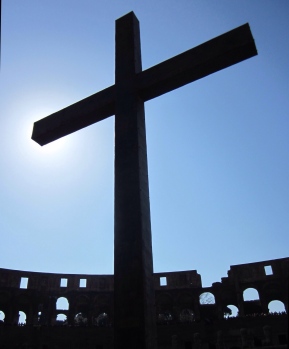 My people have been lost sheep; their shepherds have led them astray and caused them to roam on the mountains. They wandered over mountain and hill and forgot their own resting-place.
My people have been lost sheep; their shepherds have led them astray and caused them to roam on the mountains. They wandered over mountain and hill and forgot their own resting-place.
Jeremiah 50:6 (NIV)
Read: Jeremiah 50:1-7
Consider: Today’s reading from Jeremiah 50 forms part of the larger prophecy concerning Babylon, predicting its destruction and desolation. If you have an opportunity to read Jeremiah 50-51 this will give you a better understanding of the fate God predicted for the nation of Babylon, which fell in 539BC to Cyrus, the Persian king and his forces.
Jeremiah’s prophecy contrasts the fate of Babylon with the return of the captives from Judah and Israel to their homeland. Of Babylon, Jeremiah says: Babylon will be captured; Bel will be put to shame, Marduk filled with terror. Her images will be put to shame and her idols filled with terror. A nation from the north will attack her and lay waste her land. No-one will live in it; both people and animals will flee away (Jeremiah 50:2-3). Marduk was the chief God of the Babylonians and Jeremiah is proclaiming that even their most powerful God will not be able to save them from the fate the one true God has put in place for them.
For the captives from Judah and Israel, Jeremiah tells us that their future will be: In those days, at that time,’ declares the LORD, ‘the people of Israel and the people of Judah together will go in tears to seek the LORD their God. They will ask the way to Zion and turn their faces towards it. They will come and bind themselves to the LORD in an everlasting covenant that will not be forgotten (Jeremiah 50:4-5). While God’s people had separated into two nations – Judah and Israel – God foretold that they would be reunited and together they would return to their homeland and together worship the Lord in Jerusalem. Notice Jeremiah’s use of the words ‘in tears’, indicating repentance on behalf of the captives for the sins that led to their captivity in Babylon.
Later in today’s passage we read: My people have been lost sheep; their shepherds have led them astray and caused them to roam on the mountains. They wandered over mountain and hill and forgot their own resting-place (Jeremiah 50:6). Jeremiah’s use of the words ‘lost sheep’ reminded me of the parable of the lost sheep (Luke 15:3-7) and also how Jesus describes his mission as: For the Son of Man came to seek and to save the lost (Luke 19:10). Additionally, Jeremiah’s use of the word ‘shepherd’ reminds me of the NT passage where Jesus refers to himself as the good Shepherd (John 10:11-16). In John 10:11 Jesus said: I am the good shepherd. The good shepherd lays down his life for the sheep. Can you see the contrast between the good Shepherd (laying down his life for the sheep) and the shepherds mentioned by Jeremiah (leading the sheep astray)?
Perhaps you see yourself as a sheep. In fact as Christians we are all part of God’s flock, under the care of Jesus the Chief Shepherd (1 Peter 5:4). However, there will be some reading this who have a role as shepherds (really under-shepherds). Peter describes their responsibility in these words: To the elders among you, I appeal as a fellow elder and a witness of Christ’s sufferings who also will share in the glory to be revealed: be shepherds of God’s flock that is under your care, watching over them – not because you must, but because you are willing, as God wants you to be; not pursuing dishonest gain, but eager to serve; not lording it over those entrusted to you, but being examples to the flock (1 Peter 5:1-3).
Pray: Father, we pray for those who shepherd your people on earth. May they be faithful to you and to your Word, seeking to encourage and build up the people of God. Amen
Every blessing
